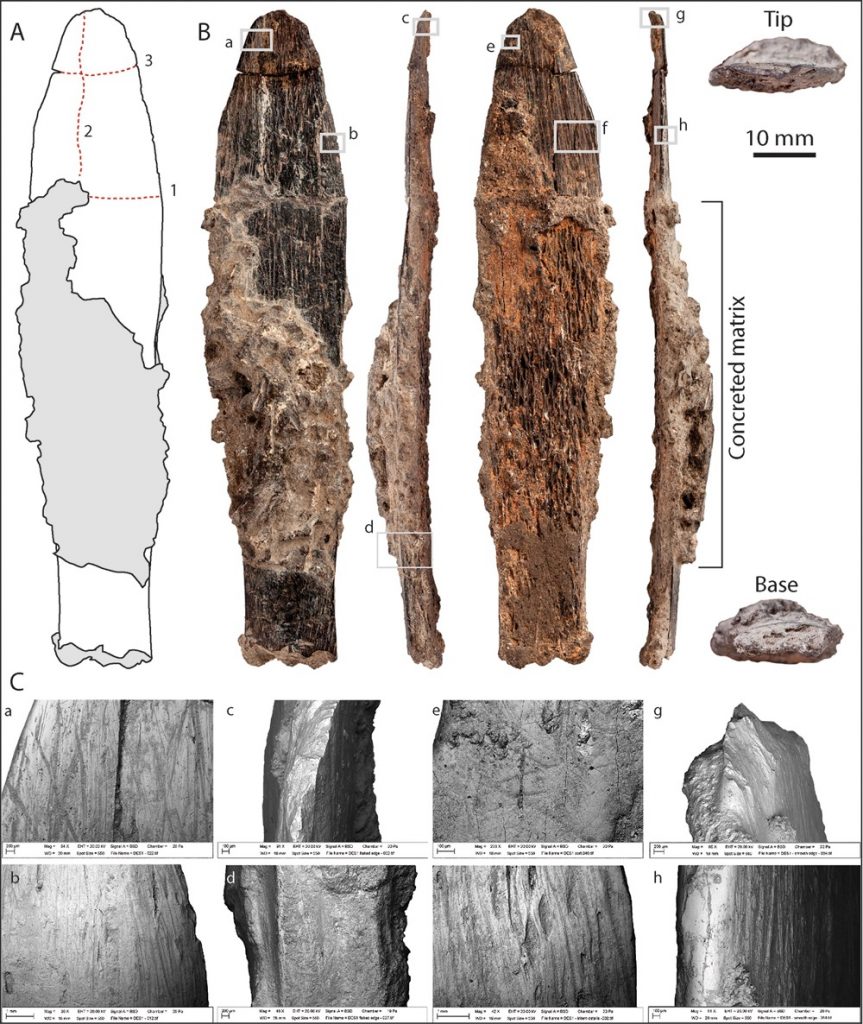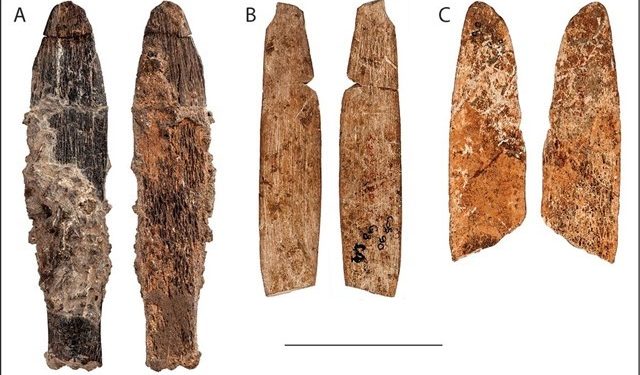The discovery marks the oldest specialized tool ever discovered, associated with the mysterious Aterian Culture.
A bone knife found in a Moroccan cave is the oldest specialized bone tool ever discovered, believed to be around 90,000 years old. The knife, say, experts, is associated with the mysterious Aterian culture of the Stone Age.
“Aterians were capable of a complex and controlled sequence of actions involved in the manufacture of specialized bone knives. Such distinctive bone technology implies the emergence of an independent modern techno-complex unique to North Africa around 100,000 years ago,” explains Silvio Bello, a co-author of the study.
It’s a unique knife, not because of its age, nor its composition but because of its manufacturing process.
According to experts, the creation as well as the manufacture of the tool are different from sub-Saharan artifacts of similar age, suggesting the possibility of a unique ancient technological industry in North Africa, according to a study led by Abdeljalil Bouzouggar of the National Institute of Archaeological Sciences and of Heritage in Morocco, published in PLOS ONE.

The knife was excavated in 2012 from the cave Dar-es Soltan 1, located about 260 kilometers inland from the Atlantic coast of Morocco.
After a detailed examination, Bouzouggar and his colleagues were able to identify the origins of the bone as a large mammalian rib with evidence of being shaped and sharpened in a 122-millimeter long knife through a complex series of modifications.
The layer containing the bone knife has been dated to approximately 90,000 years ago, some 55,000 years after the first appearance of the Aterian culture.
However, experts explain that the tool and the technology used to create it are different from bone tools of similar age in South Africa, but similar to the two tools known from the El Mnasra cave site in Morocco, which are also of similar age, suggesting a unique Aterian bone technology flourished in North Africa.
According to scholars, specialized bone tools–such as this 90,000-year-old knife–are considered a sign of cognitive complexity but have not been well understood with the Atherian technological complex, so this discovery represents a new vision of the development of modern human cognition.
The authors also suggest that this new technology could have arisen in response to changing resources some 90,000 years ago, but point out that more study will be required to support this theory.
Dr. Bello, explains that the Atherians were capable of a complex and controlled sequence of actions involved in the manufacture of specialized knives for bones.
“Such distinctive bone technology implies the emergence of a unique and modern techno-complex unique in North Africa about 100,000 years ago,” Dr. Bello concludes.











